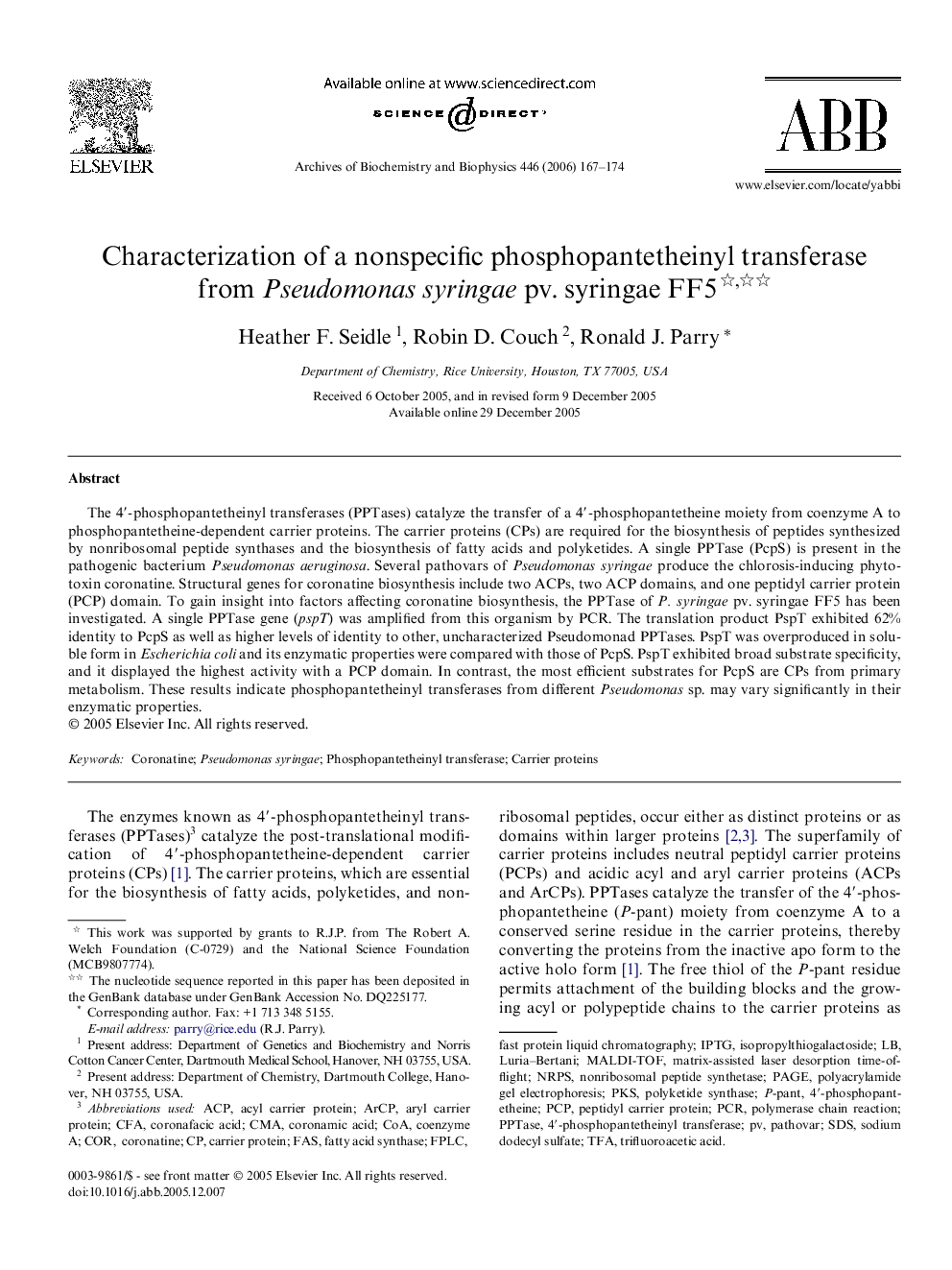| Article ID | Journal | Published Year | Pages | File Type |
|---|---|---|---|---|
| 1927616 | Archives of Biochemistry and Biophysics | 2006 | 8 Pages |
The 4′-phosphopantetheinyl transferases (PPTases) catalyze the transfer of a 4′-phosphopantetheine moiety from coenzyme A to phosphopantetheine-dependent carrier proteins. The carrier proteins (CPs) are required for the biosynthesis of peptides synthesized by nonribosomal peptide synthases and the biosynthesis of fatty acids and polyketides. A single PPTase (PcpS) is present in the pathogenic bacterium Pseudomonas aeruginosa. Several pathovars of Pseudomonas syringae produce the chlorosis-inducing phytotoxin coronatine. Structural genes for coronatine biosynthesis include two ACPs, two ACP domains, and one peptidyl carrier protein (PCP) domain. To gain insight into factors affecting coronatine biosynthesis, the PPTase of P. syringae pv. syringae FF5 has been investigated. A single PPTase gene (pspT) was amplified from this organism by PCR. The translation product PspT exhibited 62% identity to PcpS as well as higher levels of identity to other, uncharacterized Pseudomonad PPTases. PspT was overproduced in soluble form in Escherichia coli and its enzymatic properties were compared with those of PcpS. PspT exhibited broad substrate specificity, and it displayed the highest activity with a PCP domain. In contrast, the most efficient substrates for PcpS are CPs from primary metabolism. These results indicate phosphopantetheinyl transferases from different Pseudomonas sp. may vary significantly in their enzymatic properties.
